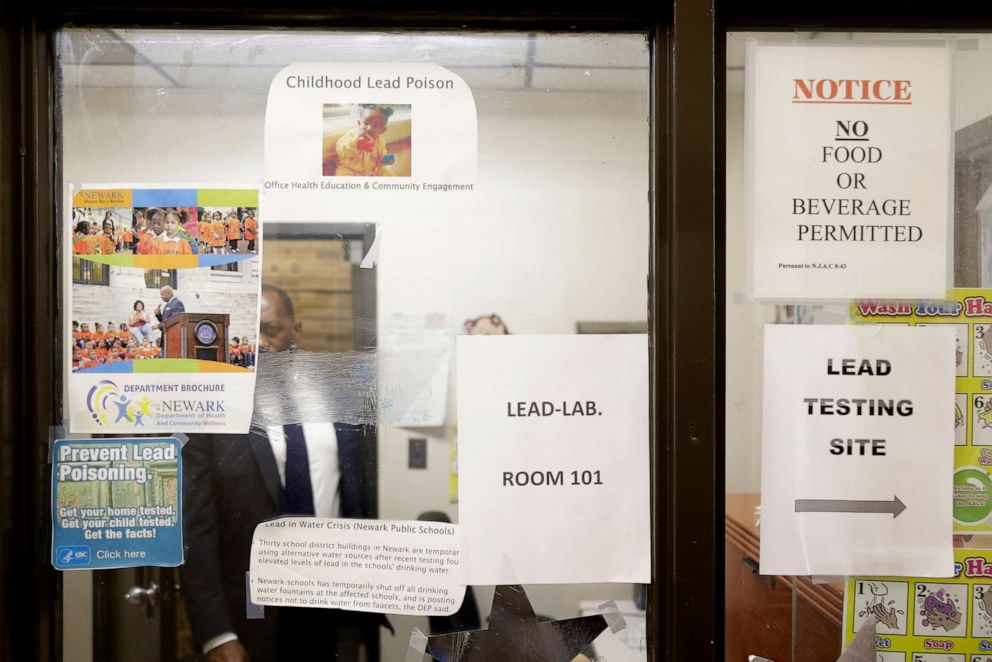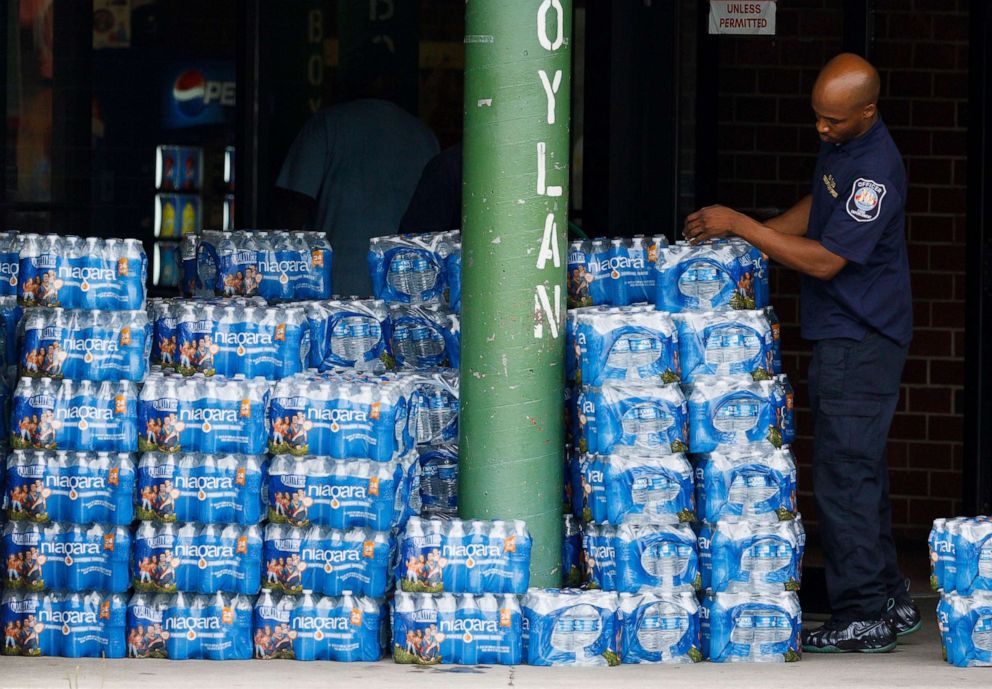Newark gets $120 million to speed up replacing lead pipes amid water crisis
Newark officials announced Monday funding from Essex County Improvement Agency.
Newark, New Jersey, officials announced a $120 million dollar plan to expedite the city's efforts to replace more than 14,000 lead pipes, at no cost to any resident.
This comes as Newark residents continue to battle an ongoing lead crisis and call on the government to fix the problem.
Since March, the city has begun to replace 18,000 old lead pipes -- some of which are more than 100 years old. The program was expected to take more than 10 years and cost $75 million.
However, with this new influx of money from the Essex County Improvement Agency, the city will be able to speed up the process, estimating that it will take between 24 and 30 months.

Newark officials had called on the federal government for assistance with addressing the crisis in the past, but now say that they can not afford to wait on action.
"We couldn't wait for them to react," Essex County Executive Joseph DiVincenzo said. "We had to do it first."”
The Newark lead crisis, which began nearly three years ago. Since last October, the city has distributed 38,000 PUR filters to residents who have water flowing through lead pipes serviced by a plant in Pequannock, New Jersey.
The crisis sparked new interest earlier this month after the Environmental Protection Agency (EPA) said that the city needed to distribute bottled water to residents after tests done by the EPA in three homes using the filters found that two showed lead levels exceeding 15 parts per billion, the federal and state drinking water standard.

While officials have acknowledged the small sample size used in this testing as part of a larger ongoing study by the city of Newark to determine the effectiveness of their new corrosion control treatment, in a statement to ABC News, an EPA spokesperson said that "out of an abundance of caution," residents should use water bottles for drinking and cooking.
Newark residents receive water from one of two systems: the Pequannock treatment plant and a plant in Wanaque, New Jersey. Residents who are serviced by both water systems are eligible to get their lead service lines replaced if they sign up with the city.




